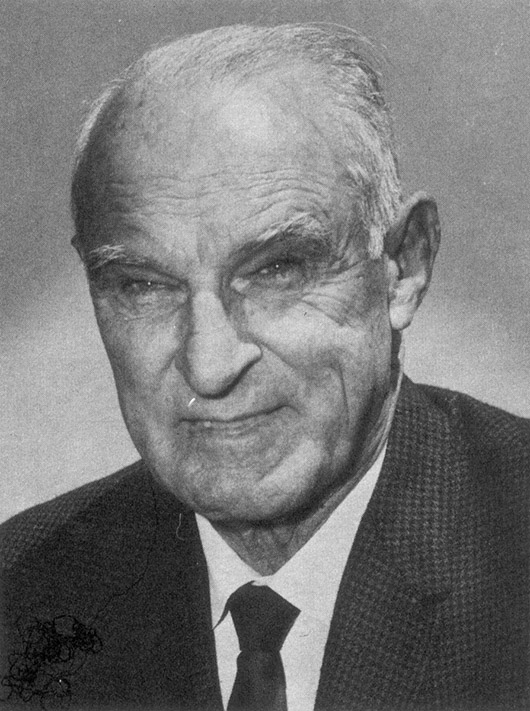Oct. 7, 2015
Commodore History Corner Archive
The street that runs in front of Vanderbilt’s McGugin Center is named for Jess Neely, who served the university as a star end, halfback (1920-22) and later athletics director. The Smyrna native was born on Jan. 4, 1898 and first attended Middle Tennessee State Normal (now Middle Tennessee State University).
Neely’s football days are mentioned in the book The First Fifty Years: A History of Middle Tennessee State College:
“Jess Neely, a brilliant half-back and a handsome man on the campus, is remembered for his popularity among members of the opposite sex and for an incident that occurred just prior to a football game with Southern Presbyterian in Clarksville. Miles had done an exceptional good job in mentally preparing his team for the game. He climaxed the pre-game, locker room exhortation with a soaring call for courage and deathless allegiance to “dear Ol’ Normal.”
“Neely was greatly affected by the words of his coach for he leaped to his feet and, roaring like an angry bull, led the team in a rush to the doorway opening to the field. He misjudged the extremely low entrance, and his head received the full impact of the strip of wall above the doorway. He was revived shortly before the kickoff, but he never quite knew where he was, frequently huddling and aligning himself with the enemy.”
One story goes that while playing football for Normal in a game against Vanderbilt, a friend of Neely suggested that he play for the Commodores. In the next few days, Neely arrived on the Vanderbilt campus as a new student and football player. Neely’s older brother, Bill played football for Vanderbilt (1908-10) and was an All-Southern selection. Big brother was also captain of the undefeated Commodores’ squad (8-0-1) of 1910.
In his senior season, Neely captained the 1922 Commodore squad that went 8-0-1 under coach Dan McGugin. Fifty Years of Vanderbilt Football by Fred Russell recounts the Dudley Field dedication game in 1922 against powerful Michigan that ended, 0-0 and Neely’s contribution:
“Capt. Neely, his injured left arm limp at his side, met Capt. Goebel in the center of the field. Lynn Bomar [Vanderbilt end] kicked off and a moment later ruined Cappon [Michigan end] with a devastating tackle. Gracefully, Kipke [Michigan halfback] then punted 55 yards over the goal line. Scotty Neil [Vanderbilt end] punted right back and Kipke was stunned by Neely’s tackle. He stayed in the game, kicked again, and this time Neil punted out short to Vanderbilt’s 26.
“Immediately the Wolverines drove to the three-yard line, first down. Neely’s voice urged his men to hold ’em. Cappon made a yard. Kipke lost one. Cappon drove to the 1-foot line. Again, Neely’s voice: ‘Stop’em!’ Rising as one, the Commodore forewall threw back the next thrust. No one knew it at the time, but Michigan was tied right there. Vanderbilt had one chance, when Neely tackled Kipke on a punt, he fumbled, and Neely himself recovered. Promptly Captain Jess passed 25 yards to McCullough, but the threat died there. A scoreless tie, and tears of joy trickled down Neely’s face as he carried the ball off the field.”
Neely was also a member of the Vanderbilt 1921 Southern Intercollegiate Athletic Association (SIAA) championship baseball team. The Vanderbilt yearbook, The Commodore, states that in the Southwestern Presbyterian University game that the team recorded 13 runs in one inning. The Tennessean reported on this unusual inning:
“Neely singled as did Kuhn; Neil fanned but Thomas got his third straight hit and both tallied. Big Tot got hit by a pitched ball and Smith was safe on a fielder’s choice with one out. Woodruff flied to right. Tyner slammed one to center, which Jetty juggled, and everybody advanced a pair of sacks.
“Ryan was safe on another error and two runs came over. Neely beat out his second hit of the inning and Kuhn walked. Neil walked. Thomas was safe on an error and Big Tot McCullough picked one over the right field fence, clearing the sacksâ€â€but oh, what’s the use? Why continue?”
In 1923, Neely was named “Bachelor of Ugliness,” a title presented to the male undergraduate student believed to be the most representative of Vanderbilt University and most popular. The award had existed since 1885 with the concept originated by Professor William H. Dodd.
After Neely graduated from Vanderbilt, he coached one year of high school football in Murfreesboro then returned to his alma mater to earn a law degree. In 1924, Neely went into coaching at Southwestern (now Rhodes College) until 1927. Neely would coach at Alabama (1928-30) as an assistant followed by head coaching positions at Clemson (1931-39) and Rice (1940-66).
At Clemson, Neely’s record was 43-35-7 and at Rice he complied a 144-124-10 mark that makes him the winningest football coach in Rice history. Neely won the first four bowls he coached: the 1940 Cotton Bowl (Clemson), 1946 Orange Bowl (Rice), 1949 and 1953 Cotton Bowls (Rice).
Neely’s Rice teams lost the last three bowls he was involved: 1957 Cotton Bowl, 1960 Sugar Bowl and the 1961 Bluebonnet Bowl. While at Rice, he won four Southwest Conference championships. Neely’s overall head-coaching record was 207-176-19. He was the head baseball coach for the Crimson Tide (1929-30), Clemson (1932-38) and Rice (1945, 1948) totaling a career record of 109-108-5.
Upon his retirement after 27 years at Rice, the one-time dean of SWC coaches returned to Vanderbilt as the Director of Athletics in 1967-71. In 1967, he received the prestigious Alonzo Stagg Award. His 207 victories at the time ranked fourth best all-time behind Amos Alonzo Staggs (314), Glenn (Pop) Warner (313) and Warren Woodson (239).

Neely is credited with bringing the Vanderbilt athletic department out of a dismal financial situation. Dr. Rob Roy Purdy, former faculty chairman of the Vanderbilt Committee on Athletics said at the time of Neely’s death in 1983:
“Most people don’t realize how close we came to going under. Even the pro-athletics members of the Board of Trust were beginning to think in terms of an intercollegiate program of another nature. I recruited Jess. Had we not been able to get him, we might have gone under.
“Jess convinced Sam Fleming, who was involved at that time in a $30 million campus fundraising project, that he could get the McGugin Center built and called on his friends among those the late Alf Sharpe, to help him. This actually started all the improvements of the football facilities at the university. Jess had a very special way with people.”
Neely hired a young Larry Schmittou from Goodlettsville High School as Vanderbilt’s new baseball coach in 1968. The baseball program had little success after joining the SEC without baseball scholarships. Now with baseball scholarships, Schmittou quickly brought the program SEC championship teams and became the all-time wins leader (since passed by Roy Mewbourne and Tim Corbin).
Schmittou, who was also a football recruiter, said after Neely’s passing:
“He is the biggest thing that ever happened in my life. And, without him, it is my opinion that there would be no Vanderbilt football program. He did things in such a quiet way that he never got very much credit. But that’s the way he wanted it. It was during some of our back-office gin rummy games that we talked about things. He was one of the few people who didn’t discourage me to get the Nashville Sounds going. He said if I had a good game plan, and was willing to work hard, it would succeed.”
When Vanderbilt head football coach Bill Pace was named the Athletics Director in 1972, Neely was given the title of Athletics Director Emeritus and golf coach. After his time at Vanderbilt ended in 1981, Neely moved to his retirement home in Weslaco, Texas. Neely died in Weslaco at age 85 on April 9, 1983.
Jess Neely was selected to the College Football Hall of Fame as a coach in 1971.
Traughber’s Tidbit: The first time a Vanderbilt football game was broadcast on the radio was November 10, 1928 from Atlanta where the Commodores lost to Georgia Tech 19-7. Dave Morris did the play-by-play on WSM radio.
Tidbit Two: The first televised Vanderbilt football broadcast was on December 31, 1955 from Jacksonville, Fla., where the Commodores defeated Auburn, 25-13 in the Gator Bowl.
Tidbit Three: The first airplane trip for the Vanderbilt football team occurred on September 26, 1947 to Chicago where the Commodores defeated Northwestern, 25-14.
If you have any comments or suggestions contact Bill Traughber via email WLTraughber@aol.com.


